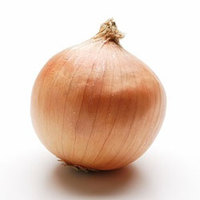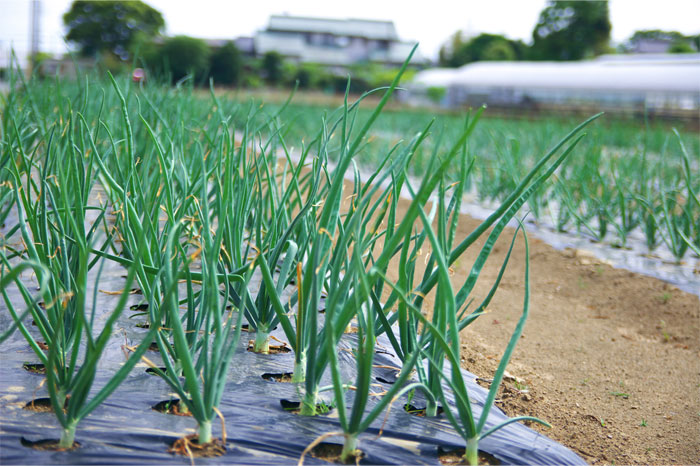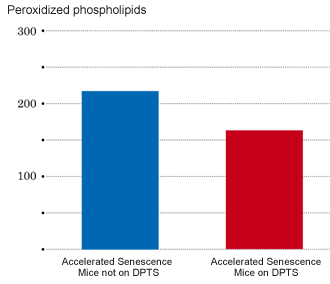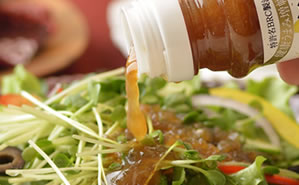Onion Paste

Protects Hippocampus, the Memory Center of the Brain, from Deleterious Effects of Oxidation; Delays Onset of Dementia.

Compounds in Onions Reach the Brain and Help Improve Defective Memory.
Dementia is on the rise in Japan's aging society. In addition to defective memory, it is also a factor in the onset of aspiration pneumonia. Hokkaido's top quality Momiji onions have received attention as a food product that helps prevent and relieve dementia, as the compound produced in the body when they are eaten is quite beneficial. Research and development on the part of industrial and academic organizations have succeeded in concentrating the dipropyl trisulfide (DPTS) compound.
The real reason for the distinctive smell of onions is allyl sulfide, which is reported to clear out the blood, preventing arteriosclerosis, and help one recover from fatigue. This smelly compound is not, however, initially present in an onion. Allyl sulfide is produced when a large cut to the plant releases enzymes which mix with sulfur-containing amino acids. The tears that we shed when cutting up an onion are due to the creation of the highly stimulating allicin-like compounds. Once the onions, which have been dice-cut or converted to a paste, are heated past a certain temperature the levels of enzyme-activated allicin-like compounds rise even higher. Once there are enough allicin-like compounds and the system is heated sufficiently, the enzyme reaction stops, and a heat reaction begins to create DPTS.
This process has received a patent (Patent No. 3725079 "Genus Allium Plant Processed Product") and is called the "BRC Process." This ground-breaking process, which doesn't use any additives, can create dice-cut onions or pastes with 15 times the DPTS levels of onions processed using traditional techniques.
One of the causes of dementia is oxidation of the hippocampus, the part of the brain which governs memory. Brain deterioration, due to oxidation of the hippocampus, is caused by stress and lifestyle, in addition to normal aging, and is preventable and treatable. Consumption of antioxidants that can pass through the blood-brain barrier are effective in preventing oxidation of the hippocampus. The antioxidant DPTS has been shown to combat oxidation of the hippocampus.
DPTS was given to a subset of a set of lab mice who were genetically predisposed to accelerated senescence as a result of easier hippocampal oxidation. The hippocampi in the mice that were not given anything started to deteriorate, resulting in memory defects. Conversely, those that were given DPTS experienced no memory defects, and hippocampal oxidation was largely prevented. This suggests that the DPTS passed through the blood-brain barrier and reached the hippocampus.

BRC Onions have had their DPTS levels selectively increased, while onions prepared using standard culinary methods can barely absorb any DPTS. They are expected to provide vital support for citizens of a rapidly aging Japan to continue to live long, vibrant lives.
New Salad Dressings and Health Food Products out of Hokkaido, a Region Blessed with Wonderful Soil and Wisdom.
BRC Onions are currently used in onion dressings designed to help people get in shape through a normal diet. Additionally, health food products are currently developed which combine BRC Onions with other Hokkaido ingredients, such as alpine leeks, which contain allyl sulfide, and aronia (chokeberries), which contain more than double the amount of the polyphenol anthocyanin than blueberries. Experiments on humans using BRC Onions have revealed lowered vascular age and improved diet and liver function. Let us all take advantage of the blessings of Hokkaido in maintaining and promoting our health.













